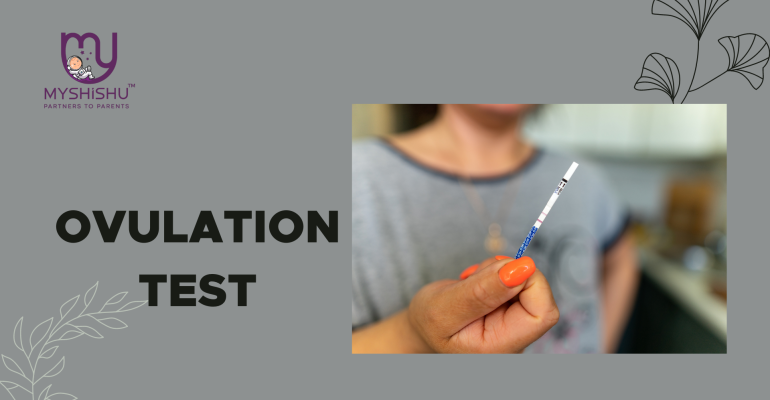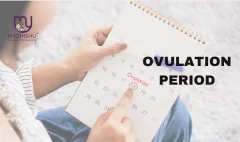Ovulation Test for Conception: A Reliable Guide to Maximizing Fertility
Ovulation Test for Conception: A Reliable Guide to Maximizing Fertility
Introduction
Welcome to the guide on using ovulation test for conception. Embarking on the journey to conceive a child is an exciting and life-changing decision for many couples. As they eagerly anticipate the arrival of a new family member, understanding the intricacies of ovulation and fertility becomes paramount. Ovulation test for conception, also known as ovulation predictor kits (OPKs), serve as invaluable tools in this process, offering insights into a woman’s most fertile window. By detecting hormonal changes that signal ovulation is imminent, these tests empower individuals to pinpoint the optimal time for conception and increase their chances of successful pregnancy.
In this comprehensive guide, we delve into the realm of using ovulation test for conception, exploring how they work, when and how to use them effectively, and what factors may influence their accuracy. Whether you’re just beginning your fertility journey or seeking to optimize your conception efforts, this resource aims to provide clarity and guidance on harnessing the power of ovulation test for conception to achieve your dream of starting or expanding your family.
Table of Contents
Understanding Ovulation
Ovulation, a crucial process in the menstrual cycle, refers to the release of a mature egg from the ovaries. This typically occurs around the midpoint of a woman’s menstrual cycle, although it can vary depending on individual factors such as cycle length and hormonal fluctuations. Ovulation marks the fertile window, during which conception is most likely to occur. For couples trying to conceive, identifying this fertile period is essential for maximizing their chances of pregnancy.
Several physiological changes accompany ovulation, driven by hormonal fluctuations. One key hormone involved in this process is luteinizing hormone (LH), which surges just before ovulation, triggering the release of the egg from the ovary. Additionally, estrogen levels rise in the days leading up to ovulation, promoting the maturation of the egg and creating an environment conducive to fertilization. By understanding these hormonal shifts and their correlation with ovulation, individuals can effectively time intercourse to coincide with the peak of fertility, increasing the likelihood of conception.
How to Use Ovulation Test for Conception
Using ovulation test for conception involves several steps to ensure accurate results. Here’s a guide:
- Choose the Right Test: Purchase ovulation predictor kits (OPKs) from a pharmacy or online. Decide between urine-based test strips or digital tests, considering ease of use and personal preference.
- Know When to Start Testing: Calculate the length of your menstrual cycle. Ovulation typically occurs around the middle of the menstrual cycle, so start testing a few days before you expect to ovulate. For example, if you have a 28-day cycle, start testing around day 11 or 12.
- Determine When to Test: Aim to test urine samples in the afternoon or evening. Avoid testing with first-morning urine, as LH levels tend to be lower at that time.
- Collect Urine Sample: Hold the test strip in your urine stream or collect a small sample of urine in a clean container. Be sure not to touch the absorbent end of the test strip.
- Read the Results: After collecting the urine sample, wait for the designated time specified in the instructions (usually a few minutes) for the results to appear. Interpret the test results according to the instructions provided with the ovulation test for conception.
- Interpret Results: Look for the appearance of the test line. If the test line is as dark as or darker than the control line, it indicates a positive result, suggesting that ovulation may occur within the next 12-36 hours.
- Record Results: Keep track of your results of ovulation test for conception on a calendar or fertility app. This will help you identify your fertile window and predict ovulation in subsequent cycles.
- Continue Testing: Test daily until you detect a surge in LH or until you confirm ovulation. Some women may experience multiple days of elevated LH levels, while others may have a brief surge.
- Time Intercourse: Plan to have intercourse on the day of the positive ovulation test for conception and for a couple of days afterward to maximize the chances of conception during the fertile window.
By following these steps, you can effectively use ovulation test for conception to predict ovulation and optimize your chances of conceiving. Always refer to the instructions provided with the specific ovulation test for conception for accurate usage guidelines.
Tips for Using Ovulation Tests Effectively
Using ovulation test for conception effectively can help accurately predict ovulation and optimize your chances of conception. Here are some tips for maximizing the effectiveness of ovulation tests:
- Understand Your Cycle: Before using ovulation test for conception, familiarize yourself with your menstrual cycle. Ovulation typically occurs around the middle of the menstrual cycle, with day one being the first day of your period. Tracking your cycle for a few months can help identify patterns and predict when ovulation is likely to occur.
- Start Testing at the Right Time: Begin testing for ovulation a few days before you expect ovulation to occur based on your cycle length. For example, if you have a 28-day cycle, start testing around day 10 or 11. Adjust the start date based on your individual cycle length.
- Test Regularly: Ovulation test for conception detects the surge in luteinizing hormone (LH) that occurs 24-36 hours before ovulation. To catch this surge, test urine samples once or twice a day, preferably around the same time each day. Testing too early or irregularly may cause you to miss the LH surge.
- Use First-Morning Urine: While not always necessary, using first-morning urine for ovulation test for conception can yield more accurate results. This is because LH levels tend to be more concentrated in the morning urine, making it easier to detect the LH surge.
- Avoid Excessive Fluid Intake: Drinking excessive fluids before testing can dilute the concentration of LH in your urine, potentially affecting the accuracy of the results. Try to limit fluid intake for a few hours before taking an ovulation test for conception to ensure a more concentrated urine sample.
- Follow Test Instructions Carefully: Read and follow the instructions provided with the ovulation test for conception carefully. Each brand may have slightly different instructions for use, so be sure to follow them accurately to obtain reliable results.
- Interpret Results Correctly: Ovulation test for conception typically display results as either positive (indicating the LH surge) or negative (no LH surge detected). A positive result means ovulation is likely to occur within the next 24-36 hours, and it’s an ideal time to have intercourse to maximize your chances of conception.
- Track Results: Keep track of your results of ovulation test for conception on a calendar or fertility tracking app. This can help you identify patterns in your cycle, predict ovulation more accurately in future cycles, and provide valuable information if you need to consult a healthcare provider about fertility concerns.
By following these tips, you can use ovulation test for conception effectively to pinpoint your fertile window and increase your chances of conceiving. If you have concerns about ovulation or difficulty interpreting test results, consider consulting a healthcare provider for personalized guidance and support.

Potential Factors Affecting Ovulation Test Results
- Hormonal Imbalance: Fluctuations in hormone levels can impact the accuracy of ovulation tests. Conditions such as polycystic ovary syndrome (PCOS) or thyroid disorders can disrupt hormonal balance, affecting the timing of ovulation and ovulation test for conception.
- Medications: Certain medications, such as fertility drugs or hormonal contraceptives, can interfere with ovulation test results. It’s essential to consult with a healthcare provider about any medications being taken and their potential effects on fertility testing and results of ovulation test for conception.
- Diluted Urine: Ovulation test for conception relies on detecting luteinizing hormone (LH) levels in urine, so dilution can affect their accuracy. Drinking excessive fluids or frequent urination before testing may dilute LH levels, leading to false-negative results of ovulation test for conception. It’s advisable to use first-morning urine or limit fluid intake before testing.
- Testing Errors: Incorrectly using ovulation tests, such as not following instructions or misinterpreting results, can impact their accuracy. It’s crucial to read the instructions carefully, use the test at the same time each day, and ensure proper timing and consistency in testing.
- Ovulatory Disorders: Women with irregular menstrual cycles or ovulatory disorders may experience challenges in predicting ovulation accurately. In such cases, alternative methods or additional monitoring, such as tracking basal body temperature or cervical mucus changes, may be recommended for better ovulation prediction.
- Stress and Illness: Physical or emotional stress, as well as illness, can influence hormone levels and disrupt the menstrual cycle, potentially affecting ovulation test results. Stress-reduction techniques and maintaining overall health and well-being may help minimize these effects.
- Age and Fertility Status: Age-related changes in fertility, such as diminished ovarian reserve or irregular ovulation, can impact the reliability of ovulation tests. Women over 35 or those with known fertility concerns may require additional monitoring and evaluation by a healthcare provider.
- Storage and Expiry: Improper storage or using expired ovulation test kits can compromise their effectiveness and accuracy. It’s essential to store tests according to manufacturer instructions and check the expiration date before use to ensure reliable results.
Understanding these potential factors can help individuals interpret ovulation test results accurately and make informed decisions about their fertility and conception journey. If concerns arise or test results are unclear, consulting with a healthcare provider can provide guidance and support tailored to individual needs and circumstances.
Optimizing Conception
Optimizing conception involves more than just identifying the fertile window; it also entails maximizing the chances of successful fertilization and implantation. Here are some strategies to enhance your chances of conception:
- Healthy Lifestyle: Maintain a healthy lifestyle by eating a balanced diet, exercising regularly, managing stress, and avoiding harmful substances like tobacco and excessive alcohol. Both partners should strive for optimal health to support fertility.
- Timing Intercourse: Time intercourse to coincide with the woman’s fertile window, which includes the days leading up to ovulation and the day of ovulation itself. Ovulation predictor kits (OPKs) can help pinpoint this fertile window by detecting the surge in luteinizing hormone (LH) that precedes ovulation.
- Frequency of Intercourse: While it’s important to have intercourse during the fertile window, couples should also aim for regular sexual activity throughout the menstrual cycle. Sperm can survive in the female reproductive tract for several days, so having sex every 1-2 days can ensure a constant supply of sperm in the reproductive tract.
- Healthy Sperm and Egg: Both partners should prioritize their reproductive health. Men can support healthy sperm production by avoiding excessive heat exposure (such as hot tubs or saunas), maintaining a healthy weight, and avoiding substances that may harm sperm quality. Women can support egg health by maintaining a healthy lifestyle and managing any underlying health conditions.
- Optimizing Sexual Positions: While there’s no scientific evidence to suggest that certain sexual positions increase the likelihood of conception, some couples find it helpful to try positions that allow for deeper penetration, such as missionary or doggy style, to facilitate sperm deposition closer to the cervix.
- After-Sex Habits: Some couples wonder if certain practices, such as lying with legs elevated or using a pillow under the hips after intercourse, can improve the chances of conception by helping sperm reach the cervix. While there’s limited scientific evidence to support these practices, they generally pose no harm and may be worth trying.
- Medical Evaluation: If you’ve been actively trying to conceive for several months without success, consider consulting a healthcare provider for a fertility evaluation. Both partners may undergo tests to identify any underlying issues affecting fertility, such as hormonal imbalances, structural abnormalities, or sperm quality issues.
By implementing these strategies, couples can optimize their chances of conceiving naturally. However, it’s important to remember that conception is a complex process influenced by various factors, and success may take time. Maintaining open communication, managing stress, and seeking support from healthcare professionals can help navigate the journey to parenthood.
Additional Common Questions
-
How do I know if an ovulation test is positive?
An ovulation test is considered positive when the test line is as dark or darker than the control line. This indicates a surge in luteinizing hormone (LH), which typically occurs 24-36 hours before ovulation.
-
Can ovulation tests detect pregnancy?
No, ovulation tests detect the surge in luteinizing hormone (LH) that precedes ovulation. They are not designed to detect pregnancy. For pregnancy detection, you would need to use a pregnancy test that detects the presence of human chorionic gonadotropin (hCG) in urine.
-
Can medications or medical conditions affect ovulation test results?
Yes, certain medications and medical conditions can potentially affect ovulation test results. Medications that contain LH or hCG (such as some fertility medications) can interfere with test accuracy. Similarly, conditions such as polycystic ovary syndrome (PCOS) or premature ovarian failure may cause irregular or absent LH surges, leading to unreliable test results.
-
How long should I continue using ovulation tests?
The duration of ovulation test use depends on various factors, including the regularity of your menstrual cycle and your fertility goals. In general, it’s recommended to continue testing until you detect a positive ovulation test result or until your menstrual period starts. If you have concerns about prolonged use or difficulty interpreting results, consult a healthcare provider for personalized guidance.
-
Can I use ovulation tests if I have irregular periods?
Yes, ovulation tests can still be useful for women with irregular periods. However, it may be more challenging to predict ovulation accurately, as irregular cycles can make it harder to determine when to start testing. In such cases, tracking additional fertility signs (such as cervical mucus changes or basal body temperature) alongside ovulation tests may provide a more comprehensive picture of fertility patterns.
-
How long after a positive ovulation test should I try to conceive?
Typically, ovulation occurs around 24-36 hours after a positive ovulation test. It’s recommended to have intercourse in the days leading up to ovulation and on the day of the positive test to maximize the chances of conception.
-
What should I do if I never get a positive ovulation test?
If you consistently do not get a positive ovulation test despite testing for several cycles, it may indicate issues with ovulation or hormonal imbalances. Consulting with a healthcare provider can help identify underlying causes and explore appropriate fertility treatment options.
-
Can medications affect ovulation test results?
Yes, certain medications, such as fertility drugs or hormonal contraceptives, can affect ovulation test results. It’s essential to consult with a healthcare provider about any medications being taken and their potential impact on fertility testing.
Conclusion
In conclusion, ovulation tests are valuable tools for women who are trying to conceive, providing valuable insights into their fertile window and optimizing their chances of pregnancy. Understanding how ovulation tests work, when and how to use them effectively, and interpreting the results can empower individuals on their fertility journey. By incorporating ovulation tests into their preconception planning and fertility tracking, individuals can take proactive steps towards achieving their goal of starting or expanding their family.
Remember, while ovulation tests can enhance fertility awareness, it’s essential to maintain a holistic approach to reproductive health, including maintaining a healthy lifestyle, managing stress, and seeking medical advice when needed. With patience, perseverance, and informed decision-making, individuals can navigate their fertility journey with confidence and hope for a positive outcome.











